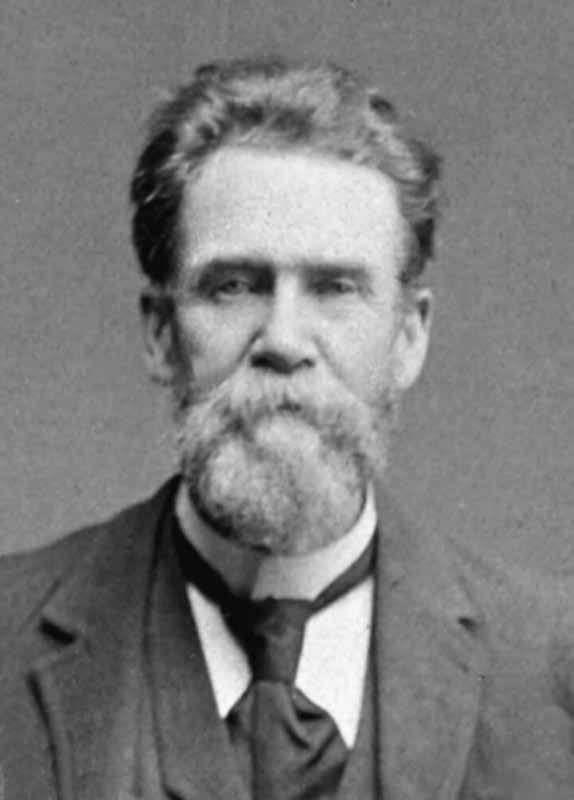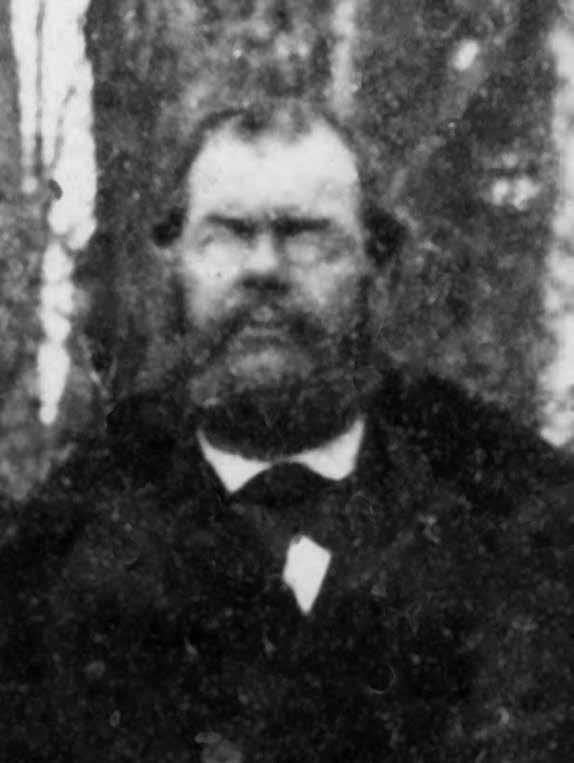
3 minute read
Joshua B. Culver: Duluth’s first mayor and leader of ‘The Ring’
By Tony Dierckins Special to the News Tribune
When Duluth first became a city on March 6, 1870, it stretched roughly between today’s 21st Avenue East and 30th Avenue West, from about Fifth Street to the shores of Lake Superior and the St. Louis River, including all of Rice’s Point and most of Minnesota Point.
About 3,100 people lived within its borders, and on April 4, 1870, they elected Joshua Backus Culver, a Democrat, their first mayor.
Or at least 241 of them did, or 54% of voters. Due to restrictions regarding citizenship, age and gender, only 448 men voted in that first election.
Culver, a native of Tomkins, New York, was 25 years old when he moved to Superior, Wisconsin, with his wife, Sarah, in 1855. The next year he co-founded the towns of Fond du Lac and Duluth and built a sawmill, and later a merchandise dock, on the bayside of South Lake Avenue near Morse Street.
He also opened Duluth’s first general store and served as its first postmaster. When the Civil War began, Culver enlisted in the 13th Michigan Infantry, which saw action in at least 10 major battles. He mustered out a colonel in July 1865 and returned to Duluth.
In the 1870 election, Culver defeated Scottish immigrant John Hunter, a mercantile and hardware store owner who later turned to banking and real estate. Duluth’s Hunter’s Park neighborhood is named for his family.
Hunter, a Republican, had been convinced to move to Duluth in 1869 by Dr. Thomas Foster, editor of the Duluth Minnesotian. Foster himself had been lured by Culver and others who offered him property and a building if he moved his St. Paul newspaper to Duluth.

In 1868 Foster gave a grand oration during an Independence Day celebration on Minnesota Point, boasting of the future Duluth. His speech declared that “all roads would lead to Duluth … our Zenith City of the Unsalted Seas,” giving the community its most enduring nickname.
But by the time Duluth became a city, Foster had lost his admiration for his benefactors — and theirs for him. Foster had come to consider many of them members of what he called “the Ring,” a group that included town founders, a few well-heeled and newly arrived capitalists and entrepreneurs, Jay Cooke’s agents, and investors in Cooke’s Lake
Superior & Mississippi Railroad.
Foster’s dislike for the Ring came from two simple issues: He felt they unfairly “ran” the community and several, like Culver, were Democrats. Foster had helped organize Minnesota’s Republican Party and was instrumental to its Duluth founding. He felt the Ring would assume total control of Duluth “if the people were fool enough to let them succeed.”

Foster failed to recognize that political affiliation mattered little to Duluth’s early power brokers, as Ring members ran for office on both tickets. In fact, in his inaugural speech Culver made sure to
Continued on page 21
This grainy image is the only known photograph of Dr. Thomas Foster, editor of the Duluth Minnesotian, made February 15, 1870, during the groundbreaking for the Northern Pacific Railroad.


1910
Population: 78,466
1913
Duluth adapts Commissioner form of government mention that his nomination “was organized by the leading men of both political parties.”
Besides Culver, most aldermen elected to the Common Council that April were considered Ring members, as were the city’s comptroller, treasurer and clerk. Foster’s election reporting accused Ring supporters of bribing voters with cash and whiskey.
The Ring would indeed run Duluth during its first few years. The city’s first three mayors — Culver, Clinton Markell and Sidney Luce — were Ring-labeled associates, and several established Duluth’s first churches and sat on its first school board.
They also organized the city’s first chamber of commerce and either lured industrial enterprises to town or organized and built them themselves: sawmills, coal docks, grain elevators, a blast furnace. For the next 20 years they essentially competed to see who could contribute most to the city’s development, and to their own fortunes along the way.
Foster wouldn’t see their success. Culver and his associates felt the editor had become “entirely too obstreperous.” Upon Jay Cooke’s advice they convinced Robert Mitchell to move his Superior Tribune to Duluth to compete with Foster.
Before the Duluth Tribune printed a single issue the Common Council voted to make it the city’s official newspaper for publishing public notices and named Mitchell “City Printer.” Foster abandoned his Zenith City in June 1872, leaving the Minnesotian to his sons, who later sold it to Mitchell.
Culver would again serve as mayor in 1882, but died in office while visiting family in Buffalo, New York. In his memoirs, Luce wrote that Culver was “generous to a fault” and that “nothing (he) could do to advance (Duluth’s) interests was left undone.” u
People Like Nowhere Else
At Essentia Health, our knowledgeable and supportive staff will help you find the medical equipment that can best contribute to your health and well-being, including: n Orthotics and prosthetics n Respiratory care n Home medical supplies n Wheelchairs and handicap aids

Duluth, MN: 218-722-3420 | Virginia, MN: 218-741-0001 Fargo, ND: 701-364-6240
Population: 98,917 1920 1915- 1920










